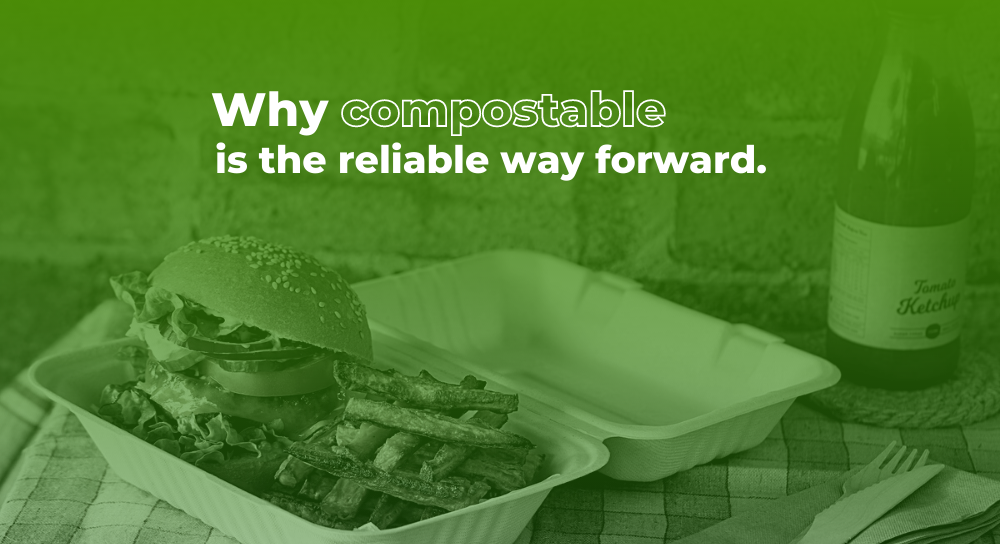
Compostable materials create a fully circular economy for packaging and other products. Here are 7 reasons why composting is better than recycling:
The expense of collecting and disposing of recyclable materials is seven times more than those of composting – and that’s assuming the recyclable waste actually makes it to a recycling plant, as 4 to 16 per cent of kerbside recycling currently ends up in landfills. In addition, apart from a few modest setup costs, composting at home is completely free.
Natural and renewable resources such as corn starch, sugar cane, and canola oil are used to make compostable materials. Their manufacturing procedures are carbon-neutral, which means they have no detrimental impact on the environment. Traditional plastic materials, on the other hand, emit a number of hazardous and unhealthy compounds into the atmosphere during production.
The full composting process can be completed for free at home or at work. This will not only save you money, but it will also offer your garden and its surrounding ecosystems healthy, nutrient-rich soil.
Because recycled and biodegradable materials are of poorer quality, the products made from them are of lower quality as well. Compostables, on the other hand, are always created using natural ingredients, simply gathered from the environment, resulting in a higher-quality product for the buyer as well as a better outcome for the planet.
Over half of the waste sent to landfills, the majority of which is food waste, can be composted. We could significantly reduce the amount of land space currently occupied by landfills if we removed this waste and composted it.
Compost is made up of decomposed organic matter that provides the soil with a wide range of nutrients. These nutrients can then be used to support plant growth and healthy microbial populations, which in turn can assist to support the ecosystem that lives in your garden.
As they decompose in landfills, compostables release methane gas, one of the most prevalent greenhouse gases in the atmosphere that contributes to global warming. If those compostables are composted properly, however, the carbon that would form methane gas is trapped in the soil rather than released into the atmosphere.
Composting packaging materials may appear strange to us, but it is a fully natural process that has occurred on Earth from the beginning of time. We at EkoPac believe we can take advantage of this process giving us a way to retain the convenience of single-use products while still protecting the environment.
We believe that while recycling materials was a good first step towards acknowledging our pollution and waste concerns, it is now time to move forward with better solutions like composting. This is why we make every effort to increase the proportion of our packaging materials that are compostable.
Further Reading:
PO Box 598 Nambour QLD 4560 Australia